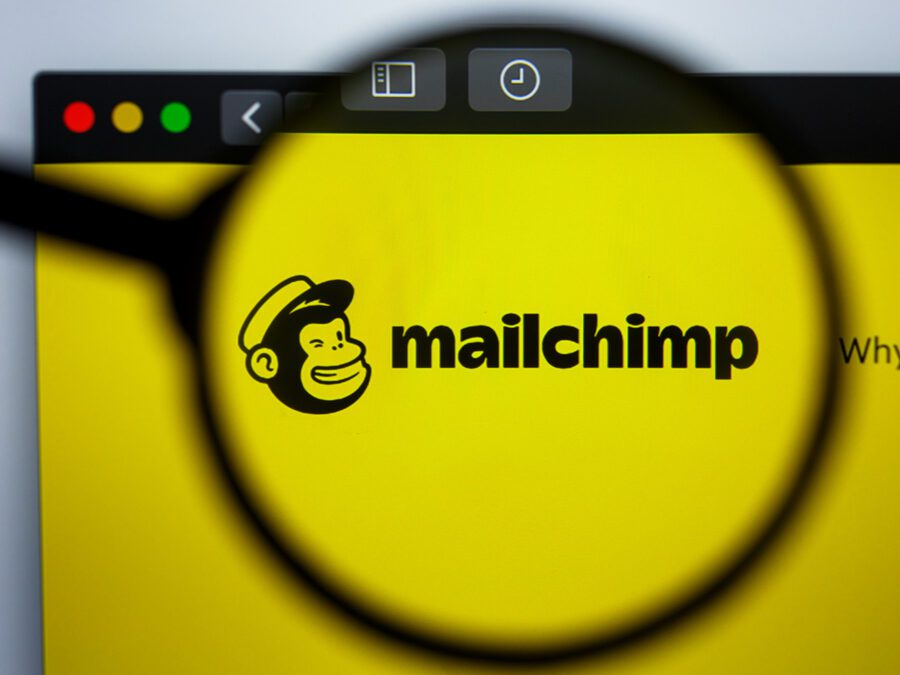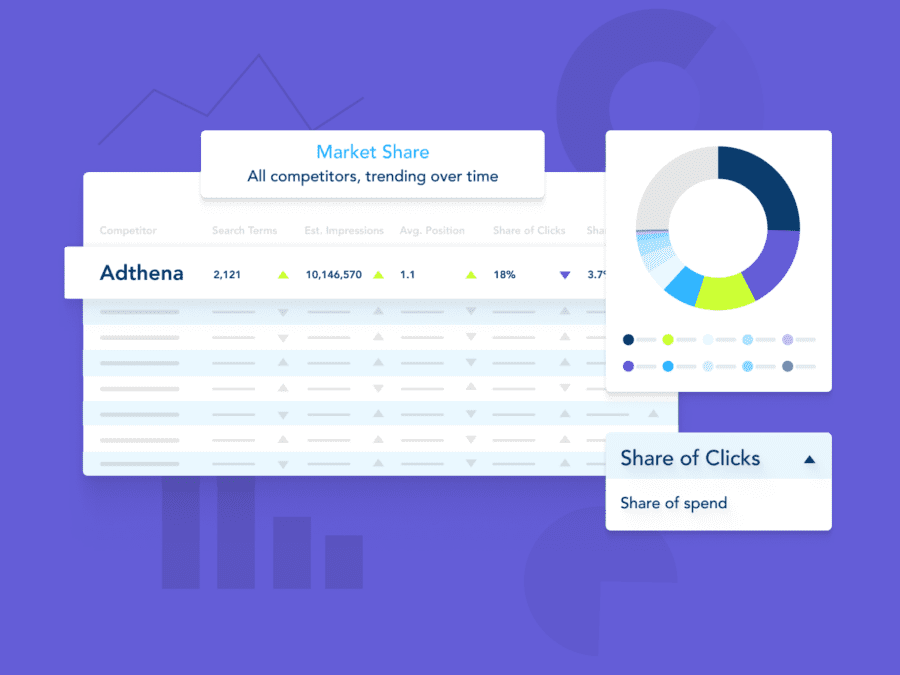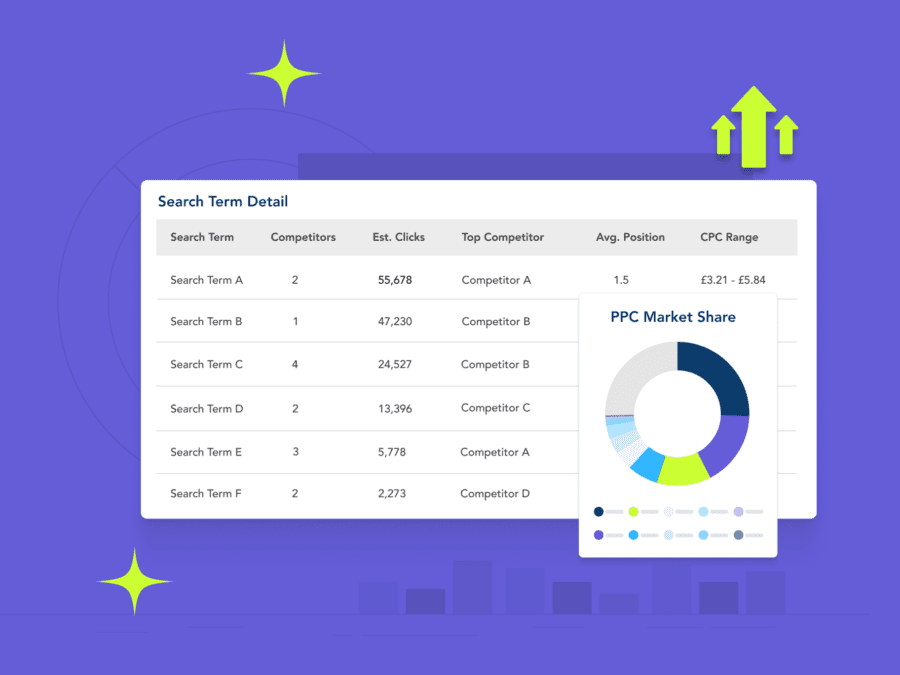We get it. When your company gets acquired in a big industry deal, there’s a lot going on. Some distraction is understandable. Maybe that explains what happened at Mailchimp back in September when they were acquired by a top global software brand and promptly fell off a cliff in the email marketing search landscape.
Over the course of a day or two, Mailchimp lost about 60% of its market share in search, and what happened next (or what didn’t happen next) is just as stunning.
A gorilla falls in the forest, and no one hears
Before the acquisition announcement, Mailchimp was the global email leader, owning about 62% of the market share in the US. Their closest competitor and also a household name in email marketing, Constant Contact owned just under 9%. That’s hardly chimp change, given email marketing is a massive market expected to reach $17B by 2027.
So, when Mailchimp’s paid search strategy shifted in September and its click share plummeted, it left a huge door open for Constant Contact, Klaviyo, and other smaller competitors to aggressively take on the market silverback and capture new business. But instead? Crickets.

Above: Adthena Data – Share of Clicks – Email Generic Terms
Klaviyo made temporary headway, and most market players made understandable modest gains with the market leader out of the auctions. But no single competitor took advantage of this opportunity to take the lead in the landscape. Why? Probably because they didn’t know the opportunity was there.
Without a market-wide, real-time view of the entire landscape and day-to-day monitoring of the shifts taking place, Mailchimp’s competitors could only see their own search performance. What they didn’t see was the great gaping opportunity that Mailchimp had left open.
Search market leadership was up for grabs, and no one claimed it, making this a clear and tragic case of I.D.: intelligence deficiency.
Mailchimp dodges a bullet
The other remarkable aspect of this story is how close Mailchimp came to facing a coup. Did they realize what an impact their strategy shift had on their click share? Were they monitoring their relative competitive performance in real time? It’s likely that if they had had a full view of their competitive landscape, they would have nipped that nosedive in the bud.
King of the email jungle once again
Adthena data shows that the email marketing competitive landscape has largely been restored to its pre-September order, with Mailchimp back on top and under new ownership. But one has to wonder: if even one of Mailchimp’s competitors had been monitoring search data more closely last fall, how would the landscape look now?
It could happen to you
The moral of this story is simple. Whether you’re a market leader or a challenger brand, competitive monitoring is essential in paid search to ensure you’re ready for threats, opportunities, unexpected shifts, and real-time windfalls.
With the Adthena platform and Smart Monitor, it’s all right on your screen every day — your entire market landscape and every move your competitors make. Only Smart Monitor automatically tracks your competitive search landscape and alerts you immediately to key market changes.
Don’t let your competitors get up to monkey business. Reach out to laura.ponton@adthena.com to learn more and get a demo.




